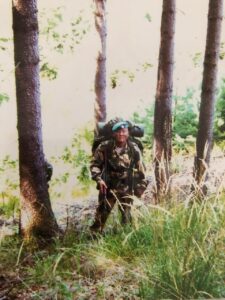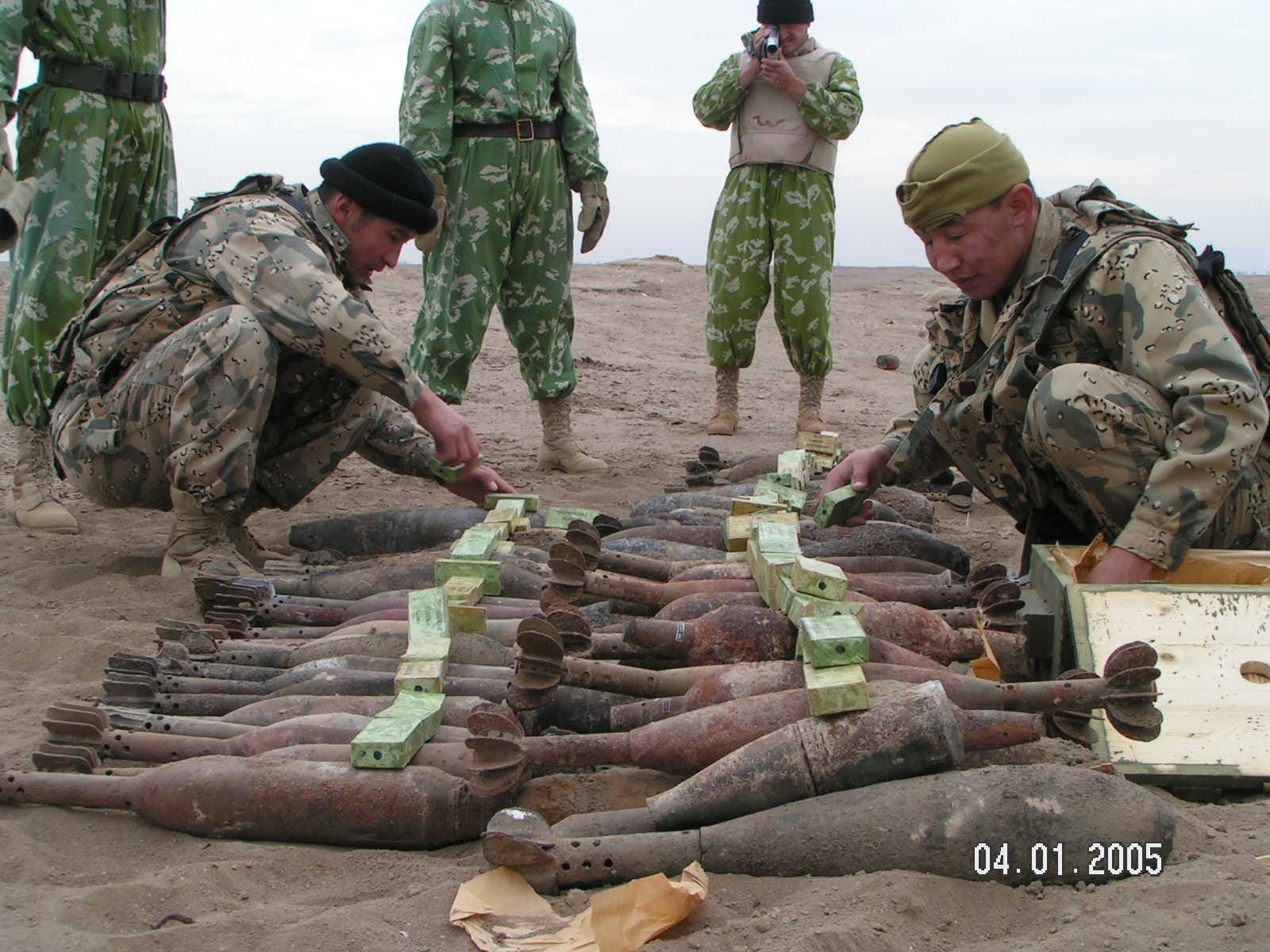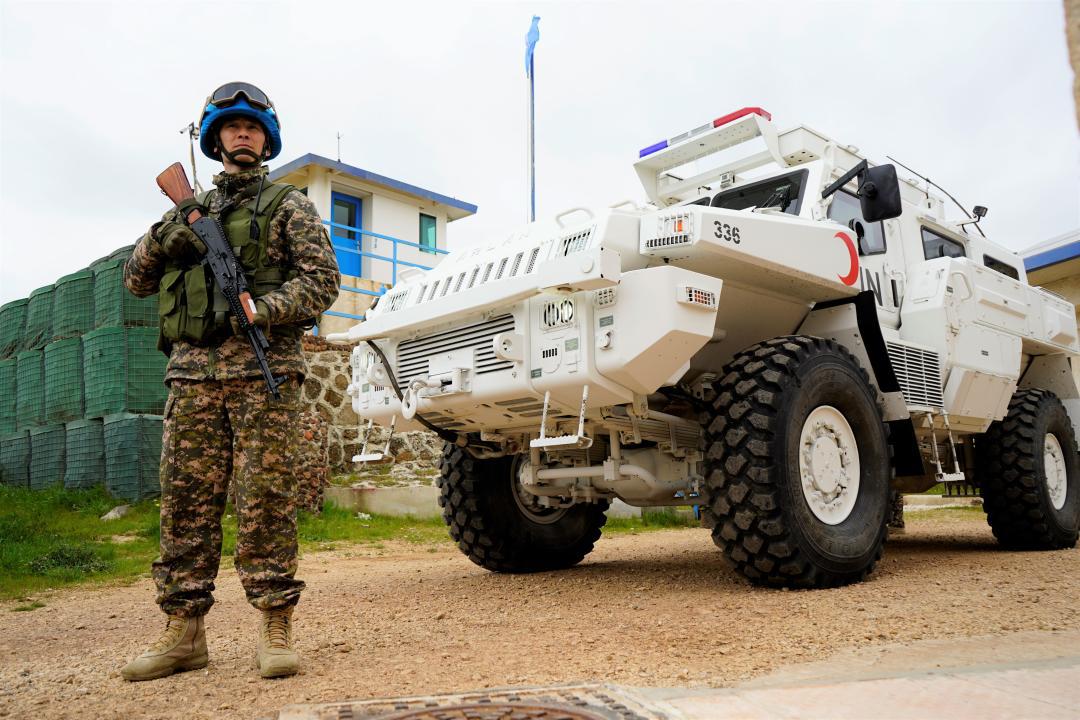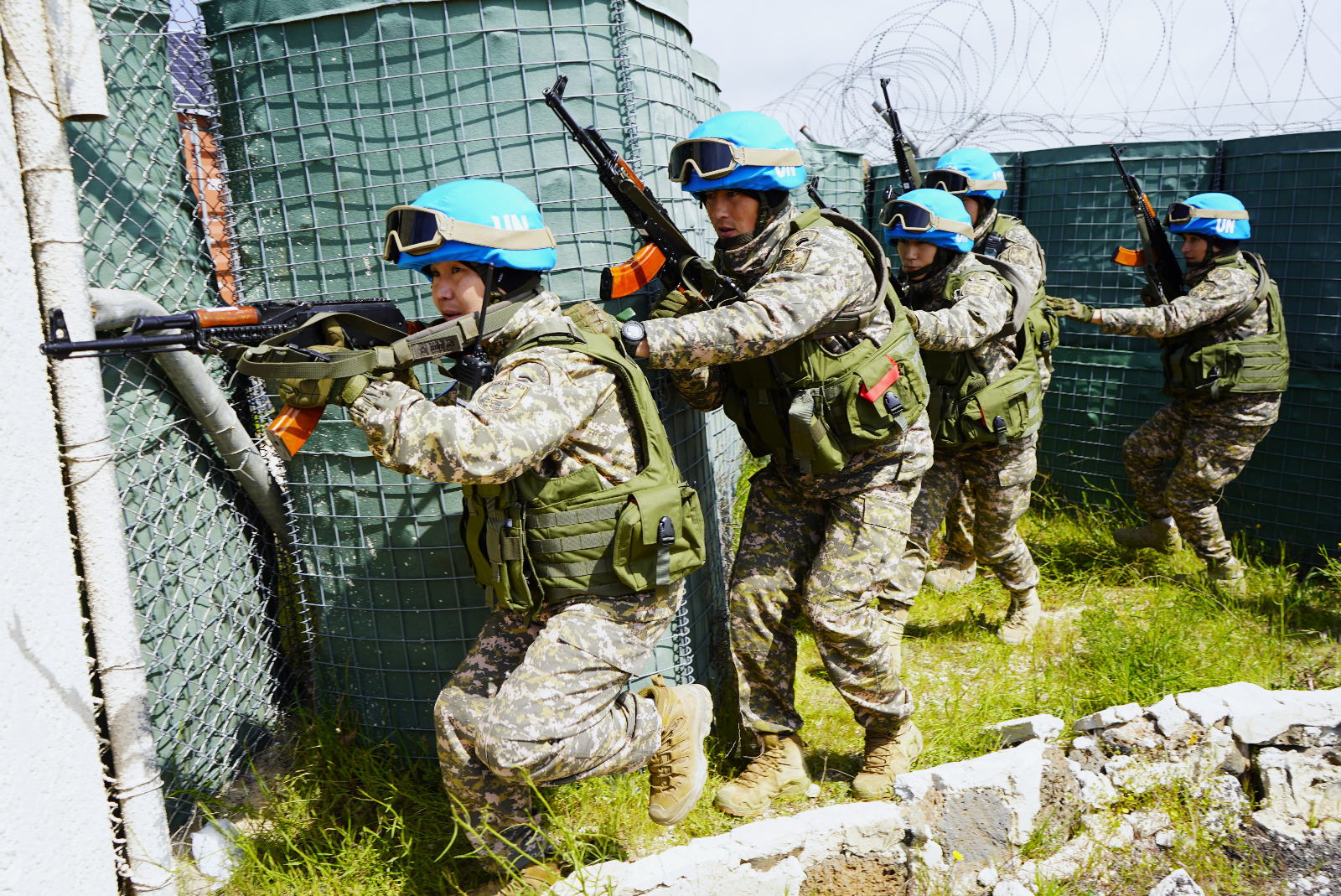ASTANA – This year marks the 28th anniversary of the establishment of the Kazakh’s Armed Forces sergeant corps, celebrated on July 1. In 1996 the first cadet corps of the Ministry of Defense was created, initiating the formation of a professional sergeant corps.

Asylkhan Dulatov, a staff sergeant of KAZCENT. Photo credit: Dulatov’s personal archieve
Kazakhstan was the first in the Commonwealth of Independent States (CIS) to form its army and develop three levels of the sergeant position hierarchy. Over the years, the sergeant corps has become an integral part of the country’s army, serving as the main channel for commanders’ requirements to the rank-and-file servicemen.
According to Asylkhan Dulatov, a staff sergeant of the Center for Peacekeeping Operations of the Ministry of Defense (KAZCENT), sergeants currently play a crucial role as they have relieved officers’ workload.
“Officers now focus mainly on planning and tactical work. We, the sergeants, junior commanders, work side by side with our junior soldiers, teaching them adherence to the daily schedule, maintaining moral and psychological well-being, discipline, physical readiness, and combat training,” he said.
The tasks of a sergeant are multifaceted and complex. They make an invaluable contribution to the training, education, and welfare of the personnel, providing comprehensive assistance to officers and implementing their decisions regarding the organization of daily military activities.
Kazakhstan’s international peacekeeping contributions
The Kazakh peacekeeping battalion was established by a decree of the President in 2000. After their training, Kazbat military personnel began a peacekeeping mission in Iraq in 2003. Ten rotations of personnel took place during the five years of participation in the operation, with more than 270 military personnel taking part in the mission.

Kazakh peacekeeping mission in Iraq, during which more than 4.5 million different munitions were destroyed. Photo credit: KAZCENT press service
“When I served in Kazbat, the war in Iraq began, and Kazakhstan also participated in peacekeeping activities. We sent an engineering and sapper unit to Iraq. And I went as part of the third engineering and sapper unit in July 2004, to fulfill my peacekeeping mission,” said Dulatov.
During the mission, the Kazakh personnel destroyed more than 4.5 million different munitions including mines, missiles, and shells, contributed to water purification projects, and provided medical assistance to the local population, mostly affected by terrorist attacks in Iraq.
The country’s officers have served in missions in Western Sahara and Côte d’Ivoire as staff officers and military observers since 2014.
The Kazakh contingent and staff officers have also been sent to the UN Interim Force in Lebanon (UNIFIL) mission to ensure the implementation of the mandate in 2018. During this time, more than 500 military personnel participated in six rotations.
For this mission, the contingent underwent a six-month training carried out by KAZCENT following the UN rules and requirements for integration and interoperability in multinational peacekeeping operations.

Photo credit: KAZCENT press service
Kazakhstan pays significant attention to personnel training both domestically at KAZCENT and abroad, teaching them to realize that when they are overseas, they represent not only themselves but also their country.
Dulatov highlighted that there are not many differences between peacekeepers and army sergeants. All sergeants, peacekeepers, and paratroopers perform the same task.
“We teach peacekeepers more about morale, which is higher among military personnel who go on peacekeeping missions. And we always emphasize that we represent the appearance of the armed forces of Kazakhstan. We pay a lot of attention to this and teach them to be brave and strong,” he said.
Historic deployment
The authority, experience, and knowledge of the sergeant corps determine the individual combat skills, the moral and psychological state of the personnel, and the overall ability of units to accomplish combat missions.

Kazakh contingent during a training session. Photo credit: KAZCENT press service
This year, Kazakhstan deployed its first independent peacekeeping contingent to the Golan Heights under the United Nations (UN). This marks a historic moment for Kazakhstan, as it is the first time the country has been mandated by the UN to independently deploy and undertake a peacekeeping mission.
Unlike previous cases, Kazakh military personnel were sent to the Golan Heights with their equipment and weapons, serving as a reserve company to the UN Disengagement Observer Force (UNDOF) under the flag of Kazakhstan.
Kazakhstan also plans to deploy 430 peacekeepers to UN missions. In addition to UNDOF in the Golan Heights, they will participate in the UN Truce Supervision Organization (UNTSO, Palestine-Israel), the UN Mission in South Sudan (UNMISS), and the UN Interim Security Force for Abyei (UNISFA, Sudan).
Over the past 16 years, more than 600 Kazakh military personnel have participated in seven UN peacekeeping missions.
